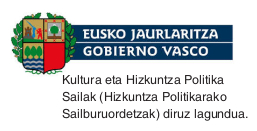Emakumeak eta alkohol-kontsumoa: estigmaren kalteak
DOI:
https://doi.org/10.26876/uztaro.5063Gako-hitzak:
Emakumea, Alkoholismoa, Autoestigma, Tratamendu-bilaketaLaburpena
Azken urteotan emakumeen alkohol-kontsumoa areagotu egin da, zeinak eragin negatiboa daukan, besteak beste, haien antsietate- eta depresio-mailetan, autokontzeptuan eta tratamendu-bilaketan. Honenbestez, lan honen helburu nagusia da alkoholarekin arazoak dituzten emakumeekiko estigmak haien buru-osasunean eta tratamendu-bilaketan izan dezakeen eraginaren berrikuspen sistematiko eguneratua egitea (PRISMA metodoarekin). Emaitzen arabera, tratamendua bilatzeko oztopoen artean emakumeek estigma-maila altuagoak dituzte eta autoestigma depresioarekin eta osasun-maila urriarekin lotuta dagoela ikusi da. Hortaz, estigma motak emakumeen ongizatean zer-nolako inpaktua duen jakitea oso lagungarri izan daiteke prebentzio-programak garatzeko eta emakumeei zuzendutako tratamendu indibidualizatu zein talde-mailakoak diseinatu, inplementatu eta ebaluatzeko.
Deskargak
Erreferentziak
APA, American Psychiatric Association. DSM-5 Task Force (2013). Diagnostic and statistical manual of mental disorders: DSM-5. American Psychiatric Association.
Baraona, Enrique et al. (2016). Gender differences in pharmacokinetics of alcohol. Alcoholism: Clinical and Experimental Research, 25(4), 502-507.
Barr, Helen eta Streissguth, Ann (2001). Identifying maternal self-reported alcohol use associated with fetal alcohol spectrum disorders. Alcoholism: Clinical and Experimental Research, 25(2), 283-287.
Barreda Marina, María Ángeles et al. (2005). Mujer y adicción. Aspectos diferenciales y aproximación a un modelo de intervención. Serie Documentos Técnicos del Instituto de Adicciones de la Ciudad de Madrid. Instituto de Adicciones.
Birtel, Michèle; Wood, Lisa eta Kempa, Nancy (2017). Stigma and social support in substance abuse: Implications for mental health and well-being. Psychiatry Research, 252, 1-8.
Braun, Tosca et al. (2023). Self-compassion buffers the internalized alcohol stigma and depression link in women sexual assault survivors who drink to cope. Addictive Behaviors, 138, 107.562.
Brown, Seth et al. (2015). Correlates of Self-Stigma among Individuals with Substance Use Problems. International Journal of Mental Health and Addiction, 13(6), 687-698.
Calvo, Helena (2004). Maternidad, infancia y drogas: implicaciones clínicas. Adicciones, 295-314.
Dean, James eta Poremba, Gregory (2009). The Alcoholic Stigma and the Disease Concept. International Journal of the Addictions, 18(5), 739-751.
Erol, Almila eta Karpyak, Victor (2015). Sex and gender-related differences in alcohol use and its consequences: Contemporary knowledge and future research considerations. Drug and Alcohol Dependence, 156, 1-13.
Escribano, José Juan eta Parra, David (2007). Diferencias de género en la enfermedad alcohólica. Adicciones, 19(4), 383-392.
Gómez Moya, Josefa (2004). Algunas reflexiones sobre el alcoholismo femenino. Cuadernos de Trabajo Social, 17, 83-98.
Gómez Moya, Josefa (2006). El alcoholismo femenino, una verdad oculta. Trastornos Adictivos, 8(4), 251-260.
Góngora Soberanes, Janette eta Leyva Piña, Marco Antonio (1995). El alcoholismo desde la perspectiva de género. El Cotidiano, 132, 84-91.
Green, Kelly (2011). Barriers and treatment preferences reported by worried drinkers of various sexual orientations. Alcoholism Treatment Quarterly, 29(1), 45-63.
Grigg, Jasmin et al. (2023). A Latent Class Analysis of Perceived Barriers to Help-seeking Among People with Alcohol Use Problems Presenting for Telephone-delivered Treatment. Alcohol and Alcoholism, 58(1), 68-75.
Hammarlund, Rebecca et al. (2018). Review of the effects of self-stigma and perceived social stigma on the treatment-seeking decisions of individuals with drug- and alcohol-use disorders. Substance Abuse and Rehabilitation, 9, 115-136.
Hanpatchaiyakul, Kulnaree et al. (2017). Lived Experience of Thai Women with Alcohol Addiction. Asian Nursing Research, 11(4), 304-310.
Karriker-Jaffe, Katherine et al. (2018). Alcohol Availability and Onset and Recurrence of Alcohol Use Disorder: Examination in a Longitudinal Cohort with Cosibling Analysis. Alcoholism: Clinical and Experimental Research, 42(6), 1105-1112.
Keyes, Katherine et al. (2010). Stigma and Treatment for Alcohol Disorders in the United States. American Journal of Epidemiology, 172(12), 1364-1372.
le Berre, Anne-Pascale; Fama, Rosemary eta Sullivan, Edith (2017). Executive Functions, Memory, and Social Cognitive Deficits and Recovery in Chronic Alcoholism: A Critical Review to Inform Future Research. Alcoholism: Clinical and Experimental Research, 41(8), 1432-1443.
Livingston, James eta Boyd, Jennifer (2010). Correlates and consequences of internalized stigma for people living with mental illness: A systematic review and meta-analysis. Social Science and Medicine, 71(12), 2150-2161.
Luoma, Jason et al. (2008). Reducing self-stigma in substance abuse through acceptance and commitment therapy: Model, manual development, and pilot outcomes. Addiction Research and Theory, 16(2), 149-165.
Luoma, Jason eta Platt, Melissa (2015). Shame, self-criticism, self-stigma, and compassion in Acceptance and Commitment Therapy. Current Opinion in Psychology, 2, 97-101.
Melchior, Hanne et al. (2019). Substance abuse-related self-stigma in women with substance use disorder and comorbid posttraumatic stress disorder. European Addiction Research, 25(1), 20-29.
Míguez, María Del Carmen eta Permuy, Beatriz (2017). Características del alcoholismo en mujeres. Revista de la Facultad de Medicina, 65(1), 15-22.
NIAAA, National Institute on Alcohol Abuse and Alcoholism (2021). Understanding Alcohol Use Disorder. https://www.niaaa.nih.gov/publications/brochures-and-fact-sheets/understanding-alcohol-use-disorder
OME, Osasunaren Mundu Erakundea (2022). Dependencia Del Alcohol, CIE-11 para estadísticas de mortalidad y morbilidad. http://id.who.int/icd/entity/1580466198
Page, Matthew et al. (2021). Declaración PRISMA 2020: una guía actualizada para la publicación de revisiones sistemáticas. Revista Española de Cardiología, 74(9), 790-799.
Probst, Charlotte et al. (2015). Alcohol use disorder severity and reported reasons not to seek treatment: A cross-sectional study in European primary care practices. Substance Abuse: Treatment, Prevention, and Policy, 10(1), 1-10.
Ransome, Yusuf et al. (2017). Racial Disparities in the Association between Alcohol Use Disorders and Health in Black and White Women. Biodemography and Social Biology, 63(3), 236-252.
Rodrigues, Stephanie et al. (2013). Self-stigma, self-esteem, and co-occurring disorders. Journal of Dual Diagnosis, 9(2), 129-133.
Rodríguez, Elena (2002ko maiatza). Perspectivas de género en los problemas de drogas y su impacto. Symposium Nacional sobre el Tratamiento de la Adicción en la Mujer, 24-27.
Rubio, Gabriel eta Blázquez, Eva María (2000). Mujer y problemas por el alcohol. Guía Práctica de Intervención en el Alcoholismo, 327-336.
Sánchez, Lorenzo (2009). «Drogas y perspectiva de género». Documento marco, Plan de atención integral a la salud de la mujer de Galicia (Edición bilingüe).
Sánchez-Hervás, Emilio et al. (2010). Abandono del tratamiento en adictos a la cocaína. Adicciones, 22, 59-64.
Schomerus, Georg et al. (2011). The Stigma of Alcohol Dependence Compared with Other Mental Disorders: A Review of Population Studies. Alcohol and Alcoholism, 46(2), 105-112.
Slade, Tim et al. (2016). Birth cohort trends in the global epidemiology of alcohol use and alcohol-related harms in men and women: Systematic review and metaregression. BMJ Open, 6(10), e011827.
Small, Jeon; Curran, Geoffrey eta Booth, Brenda (2010). Barriers and facilitators for alcohol treatment for women: Are there more or less for rural women? Journal of Substance Abuse Treatment, 39(1), 1-13.
Sullivan, Edith; Rosenbloom, Margaret eta Pfefferbaum, Adolf (2000). Pattern of motor and cognitive deficits in detoxified alcoholic men. Alcoholism: Clinical and Experimental Research, 24(5), 611-621.
Thom, Betsy (1986). Sex Differences in Help-seeking for Alcohol Problems. The Barriers to Help-seeking. British Journal of Addiction, 81(6), 777-788.
Thornicroft, Graham et al. (2016). Evidence for effective interventions to reduce mental-health-related stigma and discrimination. The Lancet, 387(10023), 1.123-1.132.
Tomás-Dols, Sofía; Zurián, Juan Carlos eta Infer, Antonio Martín (2007). Género y barreras de accesibilidad al tratamiento en pacientes adictos al alcohol de la Comunidad Valenciana. Adicciones, 19(2), 169-178.
Tristán, Carmen et al. (2021). Alcohol 2021: Consumo y consecuencias. Madril: Observatorio Español de las Drogas y las Adicciones.
Van Boekel, Leonieke et al. (2013). Stigma among health professionals towards patients with substance use disorders and its consequences for healthcare delivery: systematic review. Drug and alcohol dependence, 131(1-2), 23-35.
Vilus, Bojana eta Perich, Tania (2021). The relationship between rumination, depression and self-stigma in hazardous drinkers: an exploratory study. Discover Psychology, 1, 6-11.
White, Aaron et al. (2015). Converging Patterns of Alcohol Use and Related Outcomes Among Females and Males in the United States, 2002 to 2012. Alcoholism: Clinical and Experimental Research, 39(9), 1.712-1.726.
Wiechelt, Shelly eta Sales, Esther (2001). The role of shame in women’s recovery from alcoholism: The impact of childhood sexual abuse. Journal of Social Work Practice in the Addictions, 1(4), 101-116.
Wong, Celia et al. (2018). Hacking Stigma by Loving Yourself: a Mediated-Moderation Model of Self-Compassion and Stigma. Mindfulness, 10(3), 415-433.
Zemore, Sarah et al. (2009). Gender, acculturation, and other barriers to alcohol treatment utilization among Latinos in three National Alcohol Surveys. Journal of Substance Abuse Treatment, 36(4), 446-456.
Lizentzia
Copyright (c) 2024 Nahia Garcia de Eulate Garagalza, Goretti Soroa Martinez, Ainara Aranberri Ruiz, Aitor Aritzeta Galan

This work is licensed under a Creative Commons Attribution-NonCommercial-ShareAlike 4.0 International License.




















